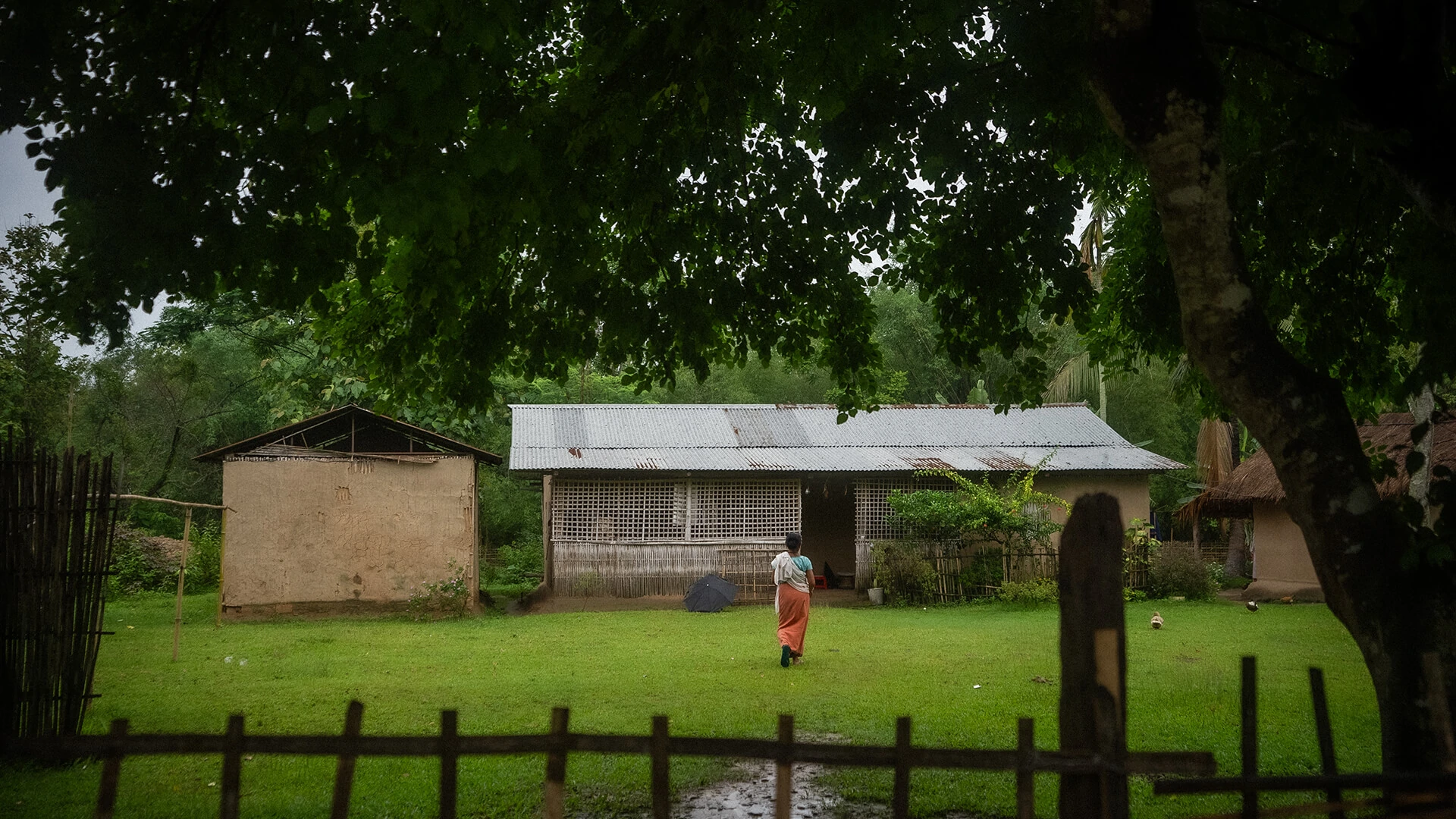Over the past 1.5 years, the ICC has accelerated inclusive climate solutions in India, by leveraging corporate philanthropy’s catalytic potential. Through our initiative, Earth Exponential, we’ve developed trusted relationships with NGOs working on extraordinary climate projects and built networks of funders who are committed to India’s climate goals.
In this article, Siddharth Bhatia (Lead – Earth Exponential) shares a few insights from our journey so far, on climate solutions and funding trends.
Climate solutions with exponential impact
Our team has vetted and curated 20 holistic climate projects from reputed NGOs across India, spanning five themes critical to India’s climate goals: climate-smart agriculture, nature-based solutions, climate-resilient tribal and rural livelihoods, urban development, and disaster risk reduction and preparedness.
We collaborated with 18 NGOs to co-create strong proposals that resonate with funders, complete with a detailed Monitoring, Evaluation, and Learning (MEL) framework to measure climate impacts, and a budget. We plan to add five more projects to this portfolio within the current financial year.
This collaborative process has helped build capacity among our NGO partners in multiple ways:
- They are expanding their opportunities to secure funding, through our support with strategic matchmaking and impactful, community-first storytelling.
- They are enhancing their project design, by harnessing collective insight and knowledge from MEL and climate experts in our network.
- They are now pitching climate projects to funders more effectively, with an enhanced ability to communicate quantifiable climate metrics.
- They are tapping into shared knowledge in the ecosystem that enables new ideas, through peer-to-peer learning exchanges.
- They are accessing additional opportunities that can enable finance and visibility like grants, fellowships, new funders, platforms, and convenings, through our networks.
 Being featured on the ICC’s Earth Exponential platform has been a remarkable opportunity for Mlinda’s project, ‘Empowering sustainable livelihoods through decentralised renewable energy’. The showcase has amplified the visibility of our innovative model, which combines clean energy access with sustainable livelihood development. This platform has not only validated our approach but also created avenues for knowledge sharing, allowing us to inspire and learn from similar initiatives worldwide.
Being featured on the ICC’s Earth Exponential platform has been a remarkable opportunity for Mlinda’s project, ‘Empowering sustainable livelihoods through decentralised renewable energy’. The showcase has amplified the visibility of our innovative model, which combines clean energy access with sustainable livelihood development. This platform has not only validated our approach but also created avenues for knowledge sharing, allowing us to inspire and learn from similar initiatives worldwide.
– Mlinda Charitable Trust
.png)
Source: Mlinda Charitable Trust
 We are grateful to the ICC for giving appropriate visibility to VIKAS Centre for Development’s work and helping raise funds for our mangrove bio-shield project, Great Green Wall of Gujarat. The entire process from introduction to initiation of the project was handled very earnestly and effectively by the ICC team. This led not only to the project being formalised, but also established a warm working relationship amongst the funder, the ICC team, and our team at VIKAS.
We are grateful to the ICC for giving appropriate visibility to VIKAS Centre for Development’s work and helping raise funds for our mangrove bio-shield project, Great Green Wall of Gujarat. The entire process from introduction to initiation of the project was handled very earnestly and effectively by the ICC team. This led not only to the project being formalised, but also established a warm working relationship amongst the funder, the ICC team, and our team at VIKAS.
– VIKAS Centre for Development

Source: VIKAS Centre for Development
 The insights and expertise provided by the ICC have been instrumental in tailoring the proposals to meet the specific donor requirements. We've found the different components of the proposal doc to be immensely valuable in shaping clear and compelling proposals that resonate with potential partners.
The insights and expertise provided by the ICC have been instrumental in tailoring the proposals to meet the specific donor requirements. We've found the different components of the proposal doc to be immensely valuable in shaping clear and compelling proposals that resonate with potential partners.
– SayTrees
.png)
Source: SayTrees
The detailed concept notes for these 20 projects are currently available to all funders who register on our Earth Exponential platform. Our catalogue ensures a broad selection of impactful and scalable solutions, and sufficient information to improve CSR decision-making.
Funding trends so far
Projects from nine NGOs have already received a total of INR 54.89 crores from CSR funders. While projects span diverse geographies, communities, and priorities, here are a few noteworthy trends.
Which geographies are funders looking at?
CSR funding for climate projects through Earth Exponential reflects notable regional variations, influenced by corporate presence, accessibility, and swerving environmental concerns. For example:
- Rajasthan, Maharashtra, and Gujarat attracted higher investment due to ease of access and monitoring opportunities for corporates.
- Despite significant climate vulnerability, regions like northeast and central India received limited funding due to geographic remoteness and infrastructure gaps.
- Targeted funding for crop residue management in Punjab and Haryana is directly linked to environmental efforts to reduce air pollution in the capital.
The map below details the geographies and themes funders have focused on through the ICC’s Earth Exponential initiative.

Which themes are attracting funding?
- Farms: Farm-based and watershed management projects received the highest funding, totaling INR 42.48 crores. Funders are prioritising these initiatives because they align with government policies and CSR objectives, while effectively improving rural livelihoods, enhancing food security, conserving water, and promoting climate-resilient practices. Learn more.

An aerial view of farms integrated with agroforestry and ponds. Source: PRADAN
- Nature: Nature-based solutions like mangrove restoration and afforestation attracted INR 3.98 crores. CSR funds are being directed towards ecological restoration, biodiversity enhancement, and carbon sequestration to align with corporates’ overall sustainability goals. Learn more.

Building nurseries for a mangrove plantation in Gujarat. Source: VIKAS
-
Jobs: Employment-focused initiatives secured INR 6.35 crores. There has been rising interest in CSR funders in supporting green jobs, livelihoods and entrepreneurship, especially with projects incorporating decentralised renewable energy. These projects provide a pathway for funders to contribute to socio-economic development while integrating a climate and gender lens. Learn more.

Procured raw custard apple transferred from a Village Level Collection Centre to a Central Processing Unit
by a women-led committee in Rajasthan. Source: SRIJAN
- Cities: Urban-focused projects saw minimal funding, as urban resilience remains a nascent area for CSR investment. Funders are exploring systemic interventions like green jobs for vulnerable populations, waterbody rejuvenation, biodiversity conservation for urban and peri urban areas, and circular economy solutions, highlighting the need for greater engagement and investment. Learn more.

A shading device at the Bhanushali Nagar vending zone, crafted from recycled tetrapack sheets, provides shade and
rain cover for breakfast vendors and a safe space for pedestrians. Source: Hunnarshala Foundation
- Resilience: Projects focused on resilience secured INR 2.08 crores in funding. While resilience encompasses disaster risk reduction and preparedness, it also addresses systemic risks and serves as an outcome for all climate action projects with relevant indicators. Furthermore, resilience intersects with multiple themes, including Nature, Farms, Jobs, and Cities. Learn more.

Kuttanad region, the southern portion of the Vembanad Wetlands, has developed a unique system of below sea level farming,
which is declared a Globally Important Agricultural Heritage System (GIAHS). Source: ATREE
Building on our experience working with CSR funders and NGOs, as well as understanding the funding trends and capacities of NGOs, we are strategically curating projects around key problem areas. In addition to detailed proposals for projects featured on our platform, we’ve begun adding high-level concept notes to our bank of solutions, to broaden our solution base and allow funders to browse through a wider range of projects. This approach provides funders with more tailored solutions that align with their strategies, while also offering NGOs greater visibility and outreach for their projects.
To learn more about projects featured on Earth Exponential, view our catalogue now or write to Himangka Kaushik - himangka@indiaclimatecollaborative.org and Aditya Mandloi - aditya@indiaclimatecollaborative.org.
For more information and data on the latest funding trends, read the ICC’s Trends in climate philanthropy now.

Subscribe to our Newsletter
Join ICC's monthly newsletter and read more about uplifting climate narratives, innovative solutions, and other updates.




